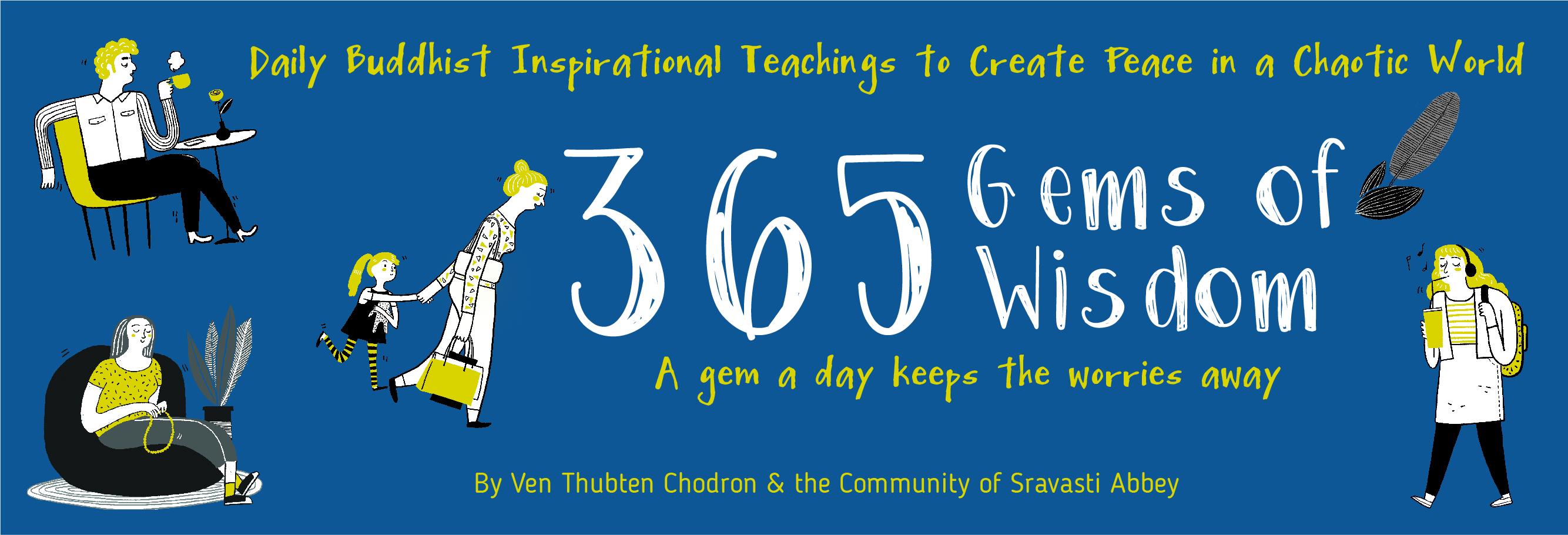April 2 : Renouncing Attachment to Sense Pleasures
The foundation of our spiritual practice is renunciation, which is the mind that wants to be free of dukkha in all its forms, not just the “ouch” kind of suffering, but the whole situation of being under the control of ignorance, afflictions and karma. It is dukkha that makes us take this body in the first place and have a mind filled with afflictions. It is important to develop some renunciation because otherwise, Dharma is just a hobby as we basically are sense pleasure addicts on the fundamental level. We may call ourselves Dharma practitioners, but if we face a choice between Dharma and experiencing pain or a choice between Dharma and a whole lot of sense pleasure, which do we go for? We go for the sense pleasure, and I am not just talking about seeing, hearing and those kinds of things, but the whole emotional gooeyness of relationships. Anytime we are seeking happiness outside of ourselves we are in this kind of mental state.
Our attachment to sense pleasure makes Dharma practice very difficult even though it is what we must overcome to really begin to practise. We are kind of in a catch-22 situation, and it is the same with self-grasping ignorance. We need to repeatedly contemplate and look at this attachment in our lives and not just intellectually. What happens when our mind is constantly drawn to sense pleasure? What happens to our ethical discipline? What happens to our wish to be of benefit to others? What happens to our love and compassion? All these get compromised. What happens to our wish to develop wisdom? We get distracted from it.
It is not a question of whether we are good or bad people, so do not think, “I’m bad because I’m attracted to sense pleasure.” That is totally the wrong way of looking at it. The point is to see how sensual pleasures are antithetical to our deepest spiritual aspirations. It becomes much easier to avoid getting drawn by sense pleasures if we have spent a lot of time focusing on how our attachments are a pain in the neck. Just thinking a little bit about the disadvantages during your morning motivation and forgetting them the rest of the day will not make much of an impact. Only by repeated familiarisation with the disadvantages can we catch ourselves being captivated by sense objects or relationships and investigate, “What is my experience? What is my intention? What kind of karma will this create in the long term? How does this affect my wish for liberation and awakening?” Our wisdom mind will enter when we stop, evaluate and analyse, and wisdom will prevent us from getting caught up in a guilt trip or self-criticism.
“365 Gems of Wisdom” e-book is out now!

